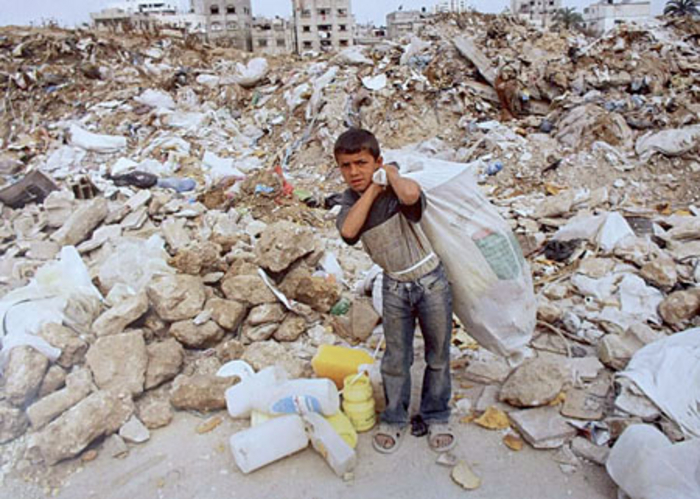About 400 million or one in ten people in Asia and the Pacific are living under poverty due to widening income inequality, according to a report titled ‘Eradicating Poverty and Promoting Prosperity in a Changing Asia-Pacific’.
More than one in four people in Asia and the Pacific’s developing countries experience poverty in multiple dimensions. This includes additional deprivations that impact their health, education, and standard of living. The report displays the bleak picture despite the region’s impressive gains in reducing income poverty in recent decades.
The report was launched by the United Nations Economic and Social Commission for Asia and the Pacific (ESCAP), the Asian Development Bank (ADB) and the UN Development Programme (UNDP) in a forum- APFSD 2017 in Bangkok, Thailand.
“As outlined in the report, a renewed strengthening of the social contract is critical for addressing multi-dimensional poverty and the high marginalisation and exclusion of people,” said Dr. Shamshad Akhtar, United Nations Under-Secretary General and Executive Secretary of ESCAP at the Asia Pacific Forum on Sustainable Development.
“It also provides opportunities for innovative partnerships in which diverse stakeholders can find common ground to inclusive and sustainable growth to tackle entrenched problems and build synergistic solutions to the challenges of poverty in both rural and urban areas. This requires strong policy signals, clear commitments and allocation of resources to address the multiple dimensions of poverty,” she further added.
The report underscores the importance of addressing poverty through pro-poor urbanisation, effective management of rural-urban transitions, and investment in sustainable infrastructure. Although people in extreme income poverty are more likely to live in rural areas, they are increasingly found in cities, therefore provision of high quality; low-carbon, and resilient infrastructure is essential.
“Asia’s infrastructure needs are large and will only grow, with our recent report suggesting that the region will need $1.7 trillion annually in climate-resilient infrastructure investments,” said Bambang Susantono, ADB Vice-President for Knowledge Management and Sustainable Development.
Adding further he said, “How our region chooses to bridge the infrastructure gap will have profound global implications. Concerted efforts, as highlighted in the tripartite report, can help us cover the last mile for infrastructure towards inclusive and sustainable development.”
“As urbanisation booms across Asia and the Pacific, its cities are powering innovation, economic growth and prosperity, lifting many out of poverty. But there has also been an increase in inequality and exclusion in some regions. To be more inclusive and to leave no one behind, cities must adopt innovative policies that align with the SDGs, and prioritise building the resilience of the most vulnerable groups,” said Haoliang Xu, UN Assistant Secretary-General and UNDP Regional Director for Asia and the Pacific.
The report recommends effective action on eradicating poverty, while tackling the systemic, sociocultural, and geographic factors that underpin marginalisation, exclusion, and lack of human rights protection. The number of people likely to be in vulnerable employment in the region is now greater than the global average, for example and women are particularly affected. Measures to ensure that all people can benefit from growth in the region on an equal footing are needed.
ESCAP, ADB and UNDP also launched a new SDG Data Portal today to provide up to date data on SDG indicators for governments and stakeholders in Asia and the Pacific along with an outlook assessment on SDGs in the region. All three products have been developed under a renewed partnership between the three organisations to help track SDG progress and support countries in the region to achieve the 2030 Agenda for Sustainable Development.
APFSD 2017 is being held by ESCAP in Bangkok from 29 to 31 March 2017. The conclusions and recommendations at the forum will inform discussions of the High-level Political Forum on Sustainable Development at the global level, to be convened in New York in July 2017.
Thank you for reading the story until the very end. We appreciate the time you have given us. In addition, your thoughts and inputs will genuinely make a difference to us. Please do drop in a line and help us do better.
Regards,
The CSR Journal Team


